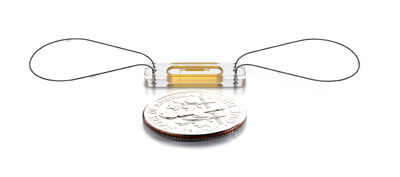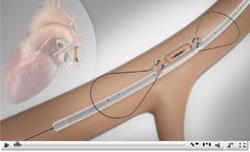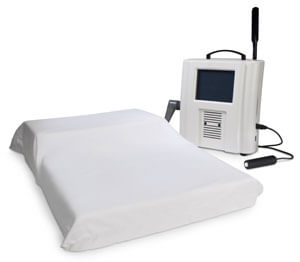CardioMEMS Cardiac Monitoring Program
What Is CardioMEMS?
The CardioMEMS Heart Failure (HF) System is an FDA-Approved heart failure
monitoring device that has been proven to significantly reduce hospital
admissions when used to help patients manage heart failure. It uses a
miniature wireless monitoring sensor implanted in the pulmonary artery,
during a non-surgical procedure, to directly measure blood pressure and
heart rate data. Patients can transmit this data from home to their health
care providers, allowing them to stabilize pulmonary artery pressure by
managing the patient’s medications more effectively.

sensor (pictured here) that is implanted in the pulmonary artery.
What Is Heart Failure?
More than five million Americans and about 26 million people worldwide suffer from heart failure, which occurs when the heart is unable to pump enough blood to the body. When this happens, blood pressure eventually rises, leading to shortness of breath, fatigue, swelling and other symptoms.
Monitoring Pulmonary Artery Pressure for Individuals with Heart Failure
Increased pulmonary artery pressures appear before weight and blood pressure changes, which are often used as indirect measures of worsening heart failure. This provides clinicians with the ability to detect worsening heart failure up to 21 days prior to other symptoms appearing, allowing for earlier intervention to prevent worsening heart failure.
How It Works: An Overview
 The CardioMEMS HF sensor is implanted in the PA on the right side of the
heart through a catheter placed in the patient’s groin. The entire
procedure takes less than an hour and most patients go home same day.
The CardioMEMS HF sensor is implanted in the PA on the right side of the
heart through a catheter placed in the patient’s groin. The entire
procedure takes less than an hour and most patients go home same day.
Once the sensor is implanted, it immediately begins to monitor PA pressures.
To transmit data each day, patients simply position themselves on a special pillow provided by CardioMEMS and follow verbal instructions given by the electronic system.
The entire process takes less than one minute.




